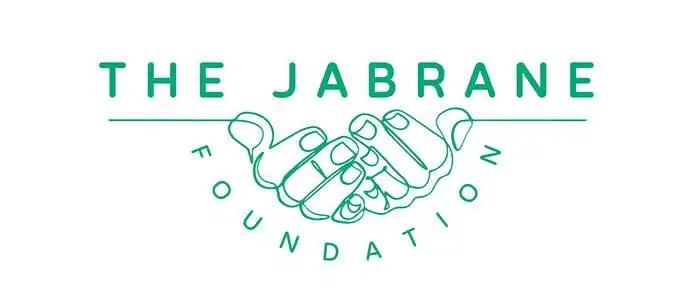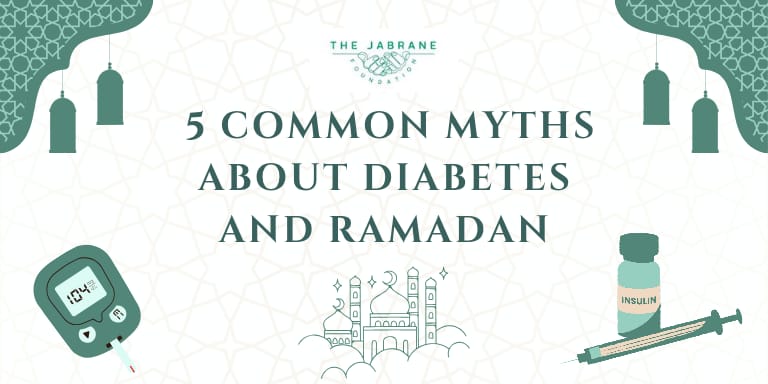Ramadan is a holy month for Muslims around the world, observed through fasting from dawn to sunset. However, for people with diabetes and Ramadan, fasting can raise many concerns. Misconceptions about diabetes and Ramadan often lead to confusion and fear, preventing many from observing the holy month as they wish.
In this blog, we will see 5 common myths about diabetes and Ramadan, providing accurate information to help those with diabetes make informed decisions about fasting while prioritizing their health. If you or someone you know has diabetes and is considering fasting, this guide will offer valuable insights.
The Benefits of giving Sadaqah in Islam
Myth 1 :People with Diabetes Cannot Fast During Ramadan
The Impact of Ramadan on Diabetes Management
One of the most common misconceptions is that people with diabetes cannot fast at all. While fasting affects blood sugar levels, it does not mean that everyone with diabetes is automatically unable to participate. With careful planning, proper monitoring, and medical guidance, many diabetics can fast safely.
Managing diabetes and Ramadan requires adjustments to medication, meal timing, and hydration. Fasting can cause blood sugar to fluctuate, but with the right approach, these risks can be minimized. Some people may experience mild fluctuations, while others may need to take extra precautions based on their individual health condition. The key is to approach fasting with awareness and preparation to maintain stable glucose levels throughout the day.
Exemptions for People with Diabetes
Islamic teachings prioritize health, and individuals with medical conditions are exempt from fasting. The Quran states that those who are ill or face hardship are allowed to skip fasting and compensate in other ways, such as feeding the needy. However, some diabetics may still wish to fast. In such cases, consulting a doctor is very important to ensure it is done safely.
It is also very important to recognize that fasting is not obligatory if it takes you to a serious health risk. People with diabetes should examine their condition with the help of a healthcare professional before deciding. Furthermore, alternative methods such as fasting on shorter days outside of Ramadan or making charitable donations can be considered.
Significance of Umrah in Ramadan
Myth 2 – Fasting Causes Severe Hypoglycemia
Understanding Hypoglycemia Risks
Another common concern is that fasting will automatically lead to dangerously low blood sugar (hypoglycemia). While fasting can increase the risk, it does not mean that all diabetics will experience severe hypoglycemia.
Finding the symptoms of hypoglycemia, such as dizziness, sweating, confusion, as well as shakiness, is essential. If blood sugar levels drop too low, it is important to break the fast immediately to prevent complications.
Understanding how fasting impacts insulin levels and how the body responds to prolonged periods without food is crucial. Some diabetics may experience mild dips in blood sugar, while others may have more extreme reactions. It is important to keep a glucose monitoring device handy and be aware of any warning signs.
Tips to Prevent Hypoglycemia During Ramadan
To reduce the risk of hypoglycemia:
- Monitor blood sugar levels frequently.
- Eat a balanced Suhoor (pre-dawn meal) with complex carbohydrates, protein, and healthy fats.
- Avoid excessive physical activity during fasting hours.
- Adjust medication doses as per a doctor’s advice.
- Break the fast if symptoms of hypoglycemia arise to prevent severe complications.
- Drink plenty of water between Iftar and Suhoor to prevent dehydration, which can impact blood sugar levels.
What is Zakat al Mal?
Myth 3 – Diabetics Must Eat ‘Diabetic-Friendly’ Foods During Iftar and Suhoor
The Truth About Diabetic Diets
Many believe that diabetics should only consume so-called “diabetic-friendly” foods. However, there is no need to buy special foods labeled for diabetics. Instead, the focus should be on a well-balanced, nutritious diet that keeps blood sugar stable.
A healthy diet for diabetics does not have to be restrictive but should be carefully planned to include a variety of nutrients. The key is to balance carbohydrates, proteins, and fats while avoiding excessive sugar and processed foods. Eating fresh, whole foods can support better blood sugar control throughout the fasting period.
Healthy Food Choices for Iftar and Suhoor
To maintain steady blood sugar levels:
- Suhoor: Include fiber-rich foods like whole grains, lean protein, and healthy fats to sustain energy levels.
- Iftar: Break your fast with dates (in moderation), followed by a balanced meal including vegetables, lean protein, and complex carbohydrates.
- Avoid sugary drinks and processed foods, which can cause blood sugar spikes.
- Incorporate nuts, seeds, and legumes into meals to help maintain stable blood glucose levels.
- Limit deep-fried and oily foods, as they can lead to weight gain and poor diabetes control.
Myth 4 – Ramadan Fasting Causes Permanent Health Issues for Diabetics
Short-Term Fasting vs. Long-Term Health Impact
Some believe that fasting can lead to permanent health issues for diabetics. However, studies show that when done correctly, intermittent fasting can have potential benefits, such as improved insulin sensitivity and better blood sugar control.
Fasting can promote metabolic flexibility, helping the body become more efficient at managing glucose. However, improper fasting practices, such as skipping Suhoor or overeating during Iftar, can have negative effects. Therefore, it is important to adopt a balanced approach.
Precautions to Take for Safe Fasting
To fast safely:
- Stay well-hydrated between Iftar and Suhoor.
- Monitor blood sugar levels regularly.
- Break your fast if you experience severe hypoglycemia or hyperglycemia.
- Seek medical guidance before deciding to fast.
- Incorporate light exercise such as walking after Iftar to help maintain blood sugar balance.
Myth 5 – Fasting During Ramadan is the Same for Everyone with Diabetes
The Variations in Diabetes and Health Conditions
Diabetes is not the same for everyone. People with Type 1 diabetes may have different risks compared to those with Type 2 diabetes. Other factors such as age, physical activity, and overall health also play a role in determining whether fasting is safe
Each person’s condition is unique, meaning that fasting may be easier for some and more challenging for others. Personalized diabetes management plans are crucial for ensuring safe fasting practices.
Fasting Plans for Diabetics
Each person’s fasting plan should be tailored to their individual needs. Working closely with a healthcare provider helps create a personalized plan, including adjustments to medication and meal planning. Regular monitoring ensures safety throughout Ramadan.
Doctors may recommend alternative fasting methods, such as fasting on alternate days or modifying the eating window to ensure a balance between religious observance and health.
Support Those in Need
This Ramadan, consider giving Zakat or a donation to Jabrane Foundation to support people who need medical assistance. Your contribution can make a difference in the lives of those struggling with health challenges.
May this Ramadan be filled with blessings, health, and well-being for you and your loved ones!
Conclusion
Fasting during Ramadan with diabetes and Ramadan is possible for many individuals, but it requires careful planning and medical advice. In this blog, we have debunked five common myths, emphasizing that diabetes and Ramadan management varies from person to person.
If you have diabetes and Ramadan and wish to fast, consult your doctor to develop a safe plan. Prioritize your health, listen to your body, and remember that Islamic teachings allow exemptions for those who are unwell.


